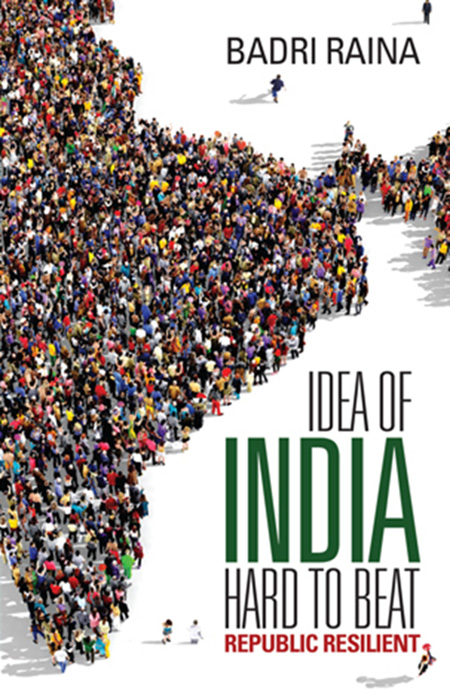Balmer Lawrie is an unusual public sector undertaking.
To start with, the company is 135 years old and has no less than 18 completely unrelated business divisions that, among other things, organise tours, blend tea, manufacture lubricants and operate container freight stations.
Despite the opposition of a section within the Union ministry of petroleum and natural gas, the government-owned company is on the verge of being privatised.
Petroleum Minister Ram Naik, who was himself at one stage in favour of restructuring the businesses of Balmer Lawrie & Co Ltd before relinquishing managerial control in favour of a private buyer, may agree to the company's privatisation.
This would probably be on account of the minister wanting to convey an impression that he is not against privatisation of PSUs per se despite having staunchly opposed the 'strategic sale' of shares of two large public sector oil companies, Hindustan Petroleum Corporation Ltd and Bharat Petroleum Corporation Ltd.
Having successfully stalled the sale of HPCL and BPCL shares to 'strategic' buyers in the private sector, Naik may not stand in the way of the privatisation of relatively smaller PSUs under the administrative control of his ministry, specifically a company like Balmer Lawrie.
Still, what cannot be denied is that bigwigs in the petroleum ministry had staunchly resisted the proposal of the ministry of divestment to sell the widely-diversified Balmer Lawrie - that recorded an annual turnover of Rs 738 crore (Rs 7.38 billion) last fiscal year.
Petroleum ministry officials contended that the company should not be privatised as it is at present without first separating the company's disparate business divisions into independent corporate entities.
The divestment ministry has, however, argued that the proposal to break Balmer Lawrie up into various business units was a ploy by 'vested interests' (read, bureaucrats, the company's management and employees) to delay the privatisation process.
On the other hand, the petroleum ministry claimed the government would obtain a higher value for the company's shares if it were split into different corporate entities before being sold to various buyers.
It is further pointed out that the government has a precedent for doing this kind of corporate restructuring - the two-dozen hotels under the India Tourism Development Corporation were separated into independent entities before these were privatised.
Balmer Lawrie used to be a subsidiary of IBP Ltd (formerly Indo-Burma Petroleum) till February 2002 when IBP was taken over by Indian Oil Corporation, the country's largest public sector oil company.
Set up in 1867 during British colonial rule and headquartered in Kolkata, Balmer Lawrie was converted into a company from a partnership firm in 1924.
Since then, the company has skipped paying dividends to its shareholders only on two occasions: in 1972 and 1975.
Because of its close association with IBP, Balmer Lawrie became a public sector company in 1972 when IBP was nationalised together with other oil companies.
Thus, Balmer Lawrie came under the wings of babus in New Delhi's Shastri Bhavan, the headquarters of the ministry of petroleum & natural gas, although many of the company's business activities had absolutely nothing to do with the oil sector or, for that matter, with one another.
Nevertheless, in individual industry segments, Balmer Lawrie was (and remains) strong and a market leader by many miles.
The company operates India's largest tours and travel agency with an annual turnover of around Rs 220 crore (Rs 2.2 billion).
Balmer Lawrie reportedly has the lion's share of the national market for the sale of airline and railway tickets; it also organises conferences and inbound as well as outbound travel programmes.
Balmer Lawrie is also the single largest producer of steel barrels in the country with a 65 per cent market share. It is also the biggest Indian producer of specialty greases and lubricants and the largest supplier of blended tea from India to Harrod's in London.
It also operates two research laboratories in Kolkata and Chennai to test lubricants and greases used in mining, by the railways and for defence equipment.
The company has five joint ventures. One venture located at Dubai manufactures barrels, bitumen drums, blow-moulded plastic containers and tin cans.
The other joint ventures include a unit to produce plastic barrels and closures, one for leasing vans and refrigerated containers, another to manufacture greases and lubricants for aircraft and a venture for producing marine freight containers.
Balmer Lawrie runs container freight stations in most of India's major ports, including Mumbai and Chennai. It also provides engineering consultancy services.
In one respect, the company has been remarkably successful for a PSU, namely, downsizing. As Balmer Lawrie chairman and managing director P K Bishnoi pointed out at the company's annual general meeting on September 25, whereas the company's turnover doubled over the past decade, the number of employees has come down by nearly half.
Currently, Balmer Lawrie's employee strength is roughly 1,600 after the successful conclusion of two voluntary retirement schemes in 2000 and 2002 that resulted in 534 and 330 employees quitting the company.
The company has also been able to pare its interest costs by around one-fifth over the last two years.
In the year ended March 2002, Balmer Lawrie's turnover shrunk by around 4 per cent but its bottomline improved significantly.
Overall expenditure came down by 4 per cent and total borrowings declined by 13 per cent while profit before tax went up by 31 per cent and profit after tax increased by 33 per cent after making provision for deferred taxation and by 41 per cent (before adjustment).
The company's financial performance during the first quarter of the current financial year has, to use Bishnoi's words, been 'extremely encouraging' with turnover going up by 20 per cent over the first quarter in 2000-01. Net profit went up by a whopping 13 times.
On June 27, the Union government issued advertisements inviting expressions of interest for the strategic sale of 61.8 per cent of the equity capital of Balmer Lawrie & Co Ltd.
The government had earlier decided to divest 33.58 per cent of its holding of 59.58 per cent in the equity of IBP Co Ltd, the erstwhile holding company of Balmer Lawrie since 1972.
To facilitate the divestment, under a 'scheme of arrangement' the 61.8 per cent holding of IBP in Balmer Lawrie was transferred to Balmer Lawrie Investments Ltd that had been incorporated for this specific purpose.
Seventeen private companies have responded to the advertisement - including two foreign firms, the British CDC India Ventures and Zim Lines of Israel.
Among the important Indian players in the race are Adani Exports, Maharashtra Seamless, Aban Lloyd Chiles, BMW Industries, Fedders Lloyd, Orissa Cements, Patton Ltd, Srei International Finance, Uttam Galvanising, Soundcraft and Technocraft.
It may be noted that two bidders have shown interest in purchasing a fancy bungalow (that was used as the residence of the Balmer Lawrie chief executive) located on Kolkata's Ballygunge Circular Road.
It has been specified that the bidders must have a minimum net worth (excluding revaluation reserves) of Rs 100 crore (Rs 1 billion) or $20.6 million to participate in the bidding process.
SBI Caps has been appointed global advisers to the divestment process.
Sources in Balmer Lawrie are, however, unsure whether potential strategic partners would be able to infuse new technology and finance into the company or improve market shares in specific industry segments.
The sources also wonder whether private owners would ensure transparency in management.
They argue that the new owners would almost certainly sell off particular business divisions and manufacturing units after acquiring managerial control over the company because no one promoter company or group would be interested in running so many unrelated businesses.
Interestingly, the Balmer Lawrie management itself had begun this process over the last four years under a restructuring plan. Under the first phase of this plan, the company closed down or gave up control over four units and one business division.
A container unit at Kochi, Kerala, was closed down and so was a factory manufacturing anti-oxidants and fatty acids located at Sewree, Maharashtra.
Balmer Lawrie also shut down its gas cylinder division at Chennai and sold its 50 per cent stake in a joint venture with Fuchs of Germany back to its former partner. The venture produces specialty lubricants at a plant in Mumbai.
The company has also phased out much of its international trading operations.
Balmer Lawrie then went ahead with implementing the second phase of its restructuring plan that entailed reducing the number of employees.
In the third and final phase of the proposed restructuring plan, the company intended transferring four business divisions - container freight stations, travel and tours, leather chemicals and tea - into separate corporate entities.
The other activities of the company would remain under the main corporate body.
Balmer Lawrie's management and employees are keen to complete this restructuring plan that has been stalled. Some of them are not opposed to privatisation but merely argue that completing the restructuring process would enhance shareholder value.
The argument is that it would be more beneficial for the employees and also the public exchequer if its present management restructured the company.
A private buyer would in all probability hive off separate divisions by stripping Balmer Lawrie of its assets, it is claimed.
Meanwhile, later in October, the potential bidders would start examining the company's documents to start the process of 'due diligence.'


